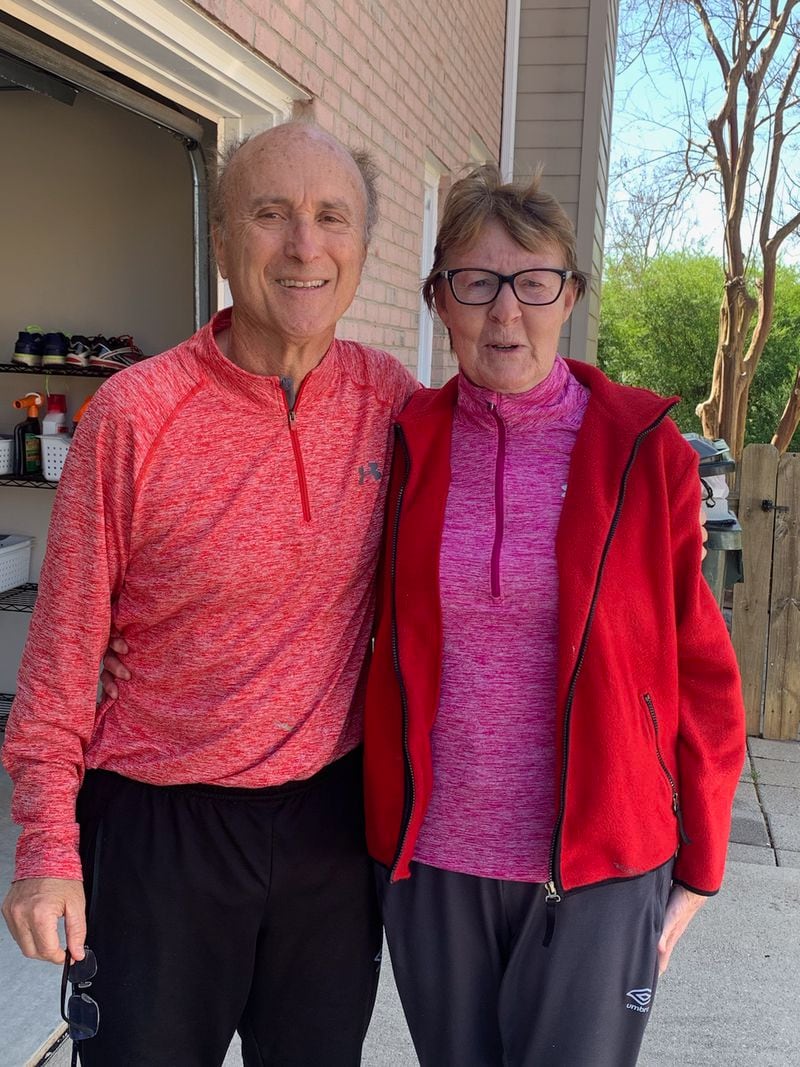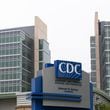Thirty years ago, Don W. Scott was one of 110 graduates of the University of Chicago Pritzker School of Medicine.
His graduating class included future internists, surgeons, pediatricians and emergency medicine doctors.
He was the only one interested in geriatrics, a specialty focused on the medical needs of the elderly.
“Older people are often not that highly valued in our society, and that can extend into the medical community as well,” said Scott, now campus director of Geriatrics Education and an associate professor of medicine at the Augusta University-University of Georgia Medical Partnership in Athens. “We’re a youth and beauty kind of culture.”
By 2040, about 1 in 5 Americans will be 65 or older, up from 1 in 8 in 2000, according to the Urban Institute. But, as the population ages, older Georgians will find it harder to get a doctor who specializes in geriatric medicine.
Nationally, 30,000 geriatricians will be needed by 2030 to care for about 21 million older Americans, according to the latest figures by the American Geriatric Society.
At the Augusta University-UGA medical program, typically out of a class of 50 students, perhaps two or three per year are interested in geriatrics, said Scott.
To become a geriatrics specialist, doctors must complete three years of residency training in internal medicine or family medicine, then a fellowship program.
Last year, there were 411 fellowship positions for geriatrics nationally, but only 51% were filled, said Dr. Anna Mirk, a geriatrician and program director for the Emory University School of Medicine Geriatric Medicine Fellowship. By comparison, of the 1,118 slots to train cardiologists, 99.8% were filled.
Multiple reasons account for the lack of interest.
Geriatric care is often not as well compensated as other specialties. Most of a geriatrician’s clients will be on Medicare, which pays doctors at a lower rate than private insurance.
Also, the seniors they will care for often have multiple chronic conditions that must be monitored and managed, such as diabetes, heart disease, high blood pressure and dementia.
It’s a complex job. Geriatricians must figure out what’s part of normal aging, what problems could be related to disease and what might be a drug side effect or interaction. Often, they have to spend more time with patients and, because of that, see fewer of them.
In Georgia, there are about 100 geriatricians, the American Geriatrics Society says. To meet the projected demand of the state’s aging population, there will need to be nearly 400 more by 2050, according to estimates recently released by the Alzheimer’s Association.
“Right now, we’re not going to meet that goal. We’re not even close,” said Dr. Harry S. Strothers III, a geriatrician and member of the geriatric fellowship faculty at Atrium Health Navicent Family Medicine residency program in Macon.
The Atrium Health residency program offers two spots for fellowships in geriatrics annually and sometimes can’t fill both, said Strothers.
The lack of geriatricians is particularly acute in rural areas, many of which also have a dearth of other kinds of specialized medical care.
Credit: Contrib
Credit: Contrib
‘Another layer of insurance’
When Mel and Barbara Garber noticed her cognitive abilities were starting to decline, they sought out a geriatrician for her care. The Oconee County couple found one through the Cognitive Aging Research and Education (CARE) Center at the University of Georgia’s College of Public Health.
They feel fortunate.
While family and internal medicine physicians also treat older patients, finding a doctor who specializes in geriatrics “gave me that level of comfort,” said Mel Garber, a retired professor of horticulture at the University of Georgia.
His wife, a 72-year-old retired school administrator, still visits her primary care physician. The geriatrician was “another layer of insurance,” said Mel Garber,
Dr. Lynnae Edwards-Carolina is nearing the end of her geriatrics fellowship at Emory after earning a degree in internal medicine. Her interest in working with older patients was piqued by her strong relationship with her grandparents, who live in the Bahamas.
“I have a special connection to the elderly,” said Edwards-Carolina. “I know how much they want to be heard, valued and appreciated.”
She said the work can be challenging but rewarding. “As geriatricians we are trained to identify the subtle nuances that are often missed with aging physiology,” she said.
Addressing the shortage
To meet the needs of an aging population, experts say pay for geriatricians needs to be increased, and other doctors need more training in those nuances of caring for the elderly.
Geriatricians are typically paid less than many other specialties, said Tony Stajduhar, president of Jackson Physician Search, an Alpharetta-based retained physician search firm.
Compensation can vary by region, hospital system and based on intra-specialties, but a cardiologist can make as much as $600,000 annually, said Stajduhar. A plastic surgeon can pull in as much as $1 million. A geriatrician typically makes between $240,000 and $300,000, sometimes less.
While that’s a lot of money, many students finish medical school saddled with staggering debt and look for areas of medicine that will pay more.
“You have to be passionate about geriatrics to do this, despite the obstacles like staying at a resident’s salary rather than an attending physician’s salary for a year and generally lower income than others in your core specialty,” said Strothers.
Recently, Emory’s School of Medicine received a pledge for $5 million to create the Kathelen and Dan Amos Medical Student Loan Forgiveness Program. Emory’s Mirk said that could help alleviate some debt for medical students, particularly those in lower-salary career paths such as geriatric medicine or general pediatrics. In return for a commitment to work for a specified time in Georgia, physicians can receive $40,000 to $160,000 in loan assistance.
Dr. Richard G. Stefanacci, with the Jefferson College of Population Health Thomas Jefferson University in Philadelphia, thinks the way to increase the numbers is to provide positive exposure to med students. And compensation must to be upped, he said.
The need is becoming even more urgent. The federal Health Resources and Services Administration estimates that 710 full-time geriatricians will leave the field due to retirement, death and changes in the workplace by 2025.
Stefanacci would also like to see other medical professionals, such as surgeons and nurses, receive more training in geriatrics.
Mirk agreed, saying more training could help other medical professionals not be intimidated because of a patient’s complicated medical condition.
“Geriatrics focuses on improving people’s functional status, not so much as curing disease,” she said. “We offer individualized care and help them navigate a complex and fragmented health care system in face of these multiple chronic conditions. They may not be curable, but they are manageable.”
About the Author







